Last June, Thailand became the first country in Southeast Asia to legalize same-sex marriage when the King signed a a historic bill that went into effect today — resulting in hundreds of Thai couples across the country emerging into the glory of legal marital recognition. Festivities included mass weddings in luxury mall Paragon Hall, organized by Thai rights group Naruemit Pride. Couples walked hand-in-hand down a makeshift rainbow runway — sometimes with their children in tow — while friends clapped and snapped pictures, posing before “Love Wins” backdrops under colorful balloon arches. There were photo booths, ice cream trucks, free cupcakes and even vacation giveaways at celebrations hosted by district officials across the country.
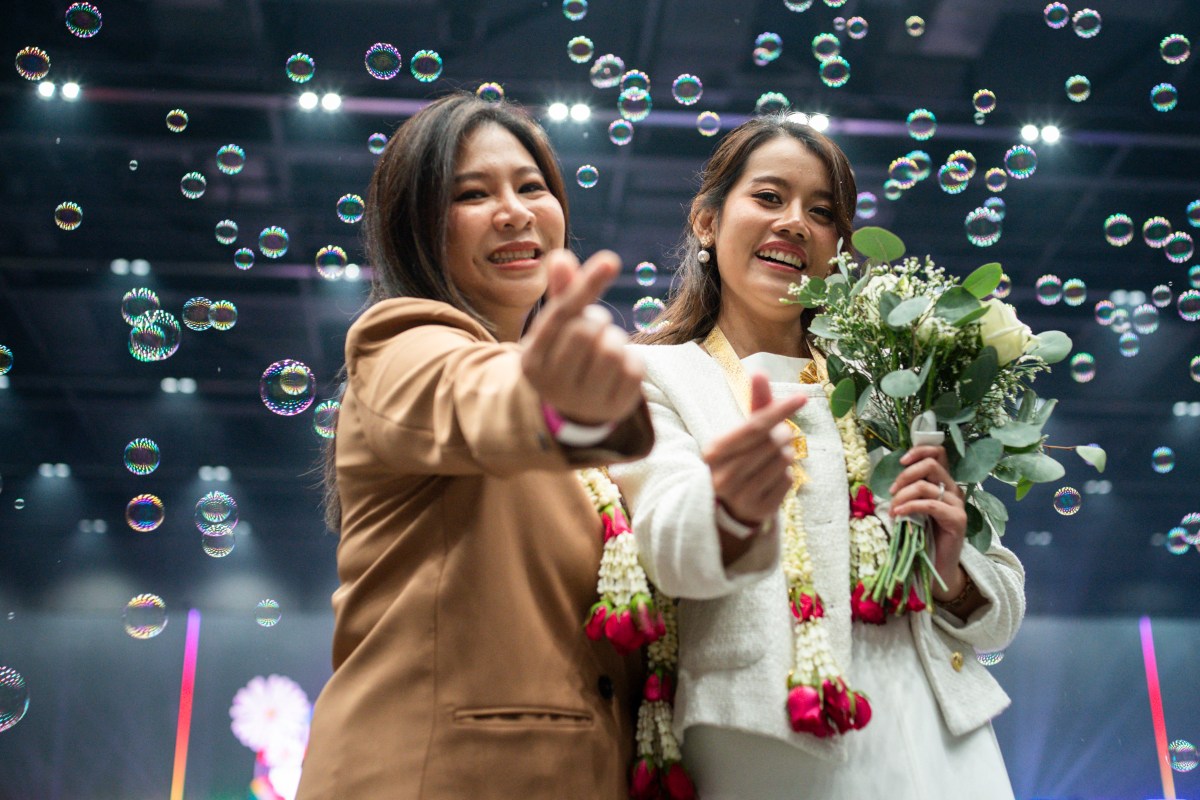
Atchima pornmuktra (L) and Wipanee nonthamarn (R), a same-sex couple, pose during their marriage registration event at Paragon shopping mall in Bangkok on January 23, 2025. (Photo by CHANAKARN LAOSARAKHAM/AFP via Getty Images)
Ploynaplus Chirasukon and Kwanporn Kongpetch told the BBC that they were proud to be the first lesbian couple to register in their district and that they’d been waiting 17 years to marry — since they were both 16 years old.
CNN spoke to 42-year-old Nina Chetniphat Chuadkhunthod, a trans woman who has been unable to marry her boyfriend of 22 years because in Thailand she cannot legally change her gender identity. “I feel like, wow, my dream is close to coming true,” she explained. “I felt the proudest moment of my life that I could do this and let people know, let the industry and friends around me know that I could do it.” The couple held their wedding party three weeks ago, and registered their union as soon as it became legal.

TOPSHOT – (COMBO) This combination photo shows couples posing after registering their same-sex marriages in Bangkok on January 23, 2025 (Photo by Manan VATSYAYANA / AFP)
LGBTQ+ activists in Thailand have been pushing for marriage equality for decades. Thailand’s first Pride march took place 25 years ago, but the event struggled with cohesion and police approval. Only two Pride marches took place between 2006 and 2022. A 2009 march was cancelled amid threats of violence. In 2015, a poll found that a majority of Thai citizens would not object to same-sex marriage.
“We were not accepted, by our own families and by society,” Bangkok Pride organizer Ms Waaddao told the BBC. “There were times when we did not think marriage equality would ever happen, but we never gave up.”
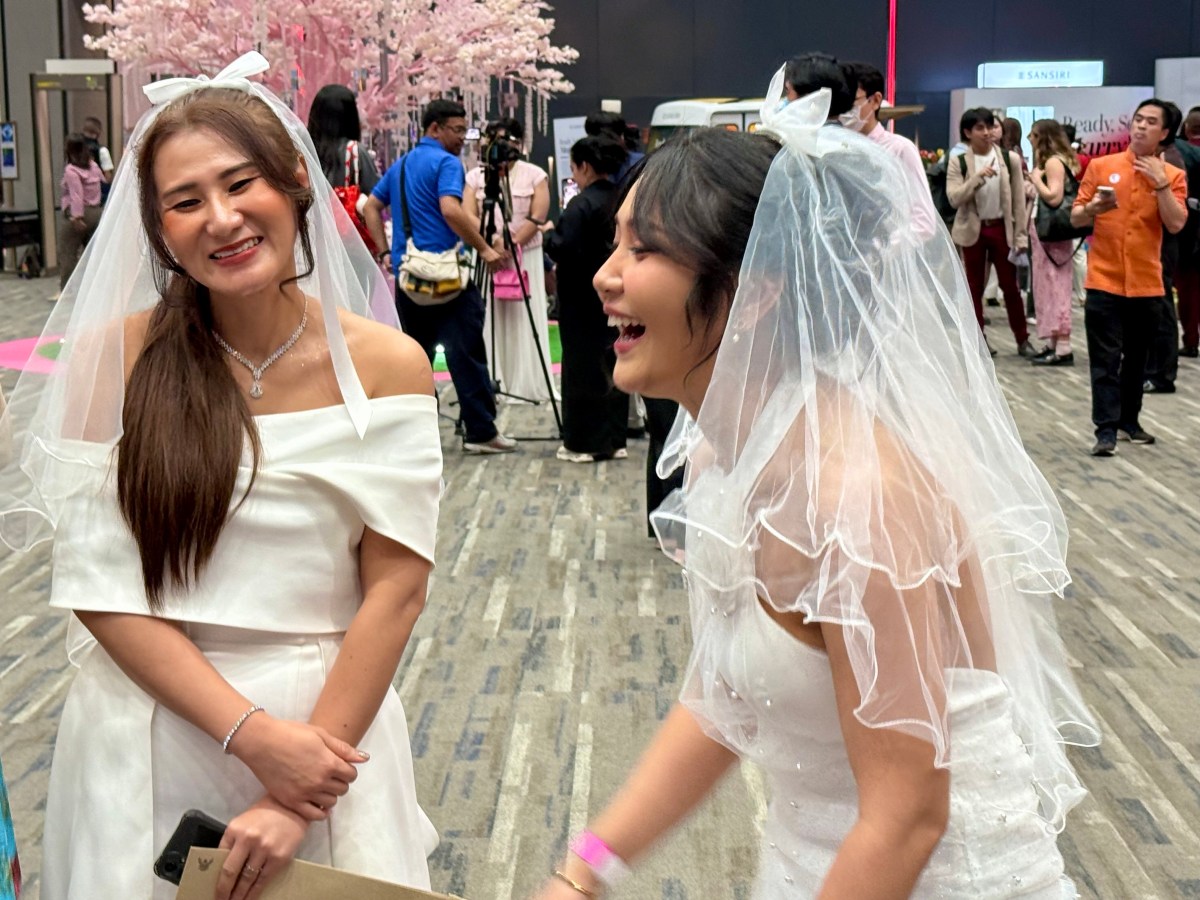
23 January 2025, Thailand, Bangkok: Two brides beam on the first day of “marriage for all” in Thailand at Paragon Hall. (Photo by Carola Frentzen/picture alliance via Getty Images)
In 2019, an election returned Thailand to civilian rule and Future Forward — a new young reformist party that fully supported equal marriage — had a significant showing. A controversial court verdict dissolved the party a year later, which led to widespread protests, led by students, calling for reforms and a curbing of monarchy power. Many credit pressure from that new generation of pro-democracy youth activists for pushing the fight over the finish line. The Marriage Equality Bill was first introduced in June of 2020.
Thailand is the third country in Asia, after Taiwan and Nepal, to legalize same-sex marriage. Under the legislation, same-sex couples who marry will have full legal, financial and medical rights, including those related to adoption and inheritance.
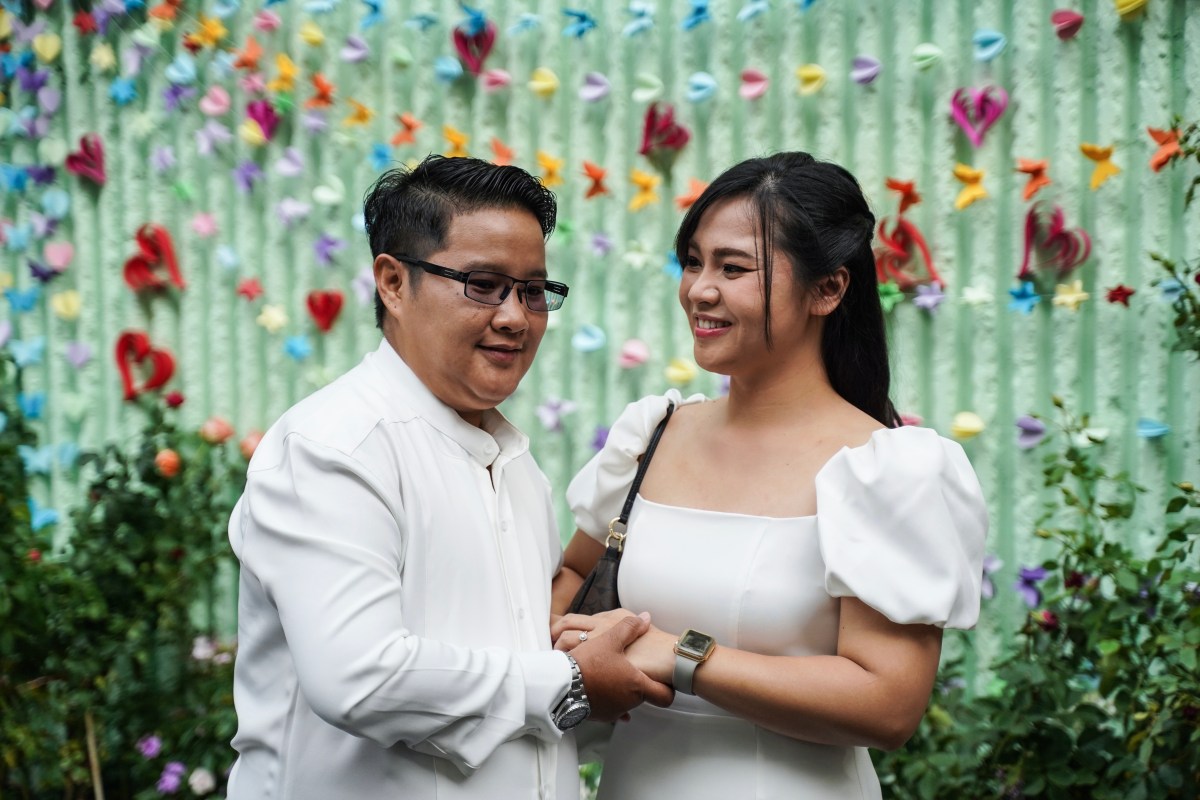
(Photo by Anusak Laowilas/NurPhoto via Getty Images)
“23 January is the day that we all mark in history, that the rainbow flag has been planted in Thailand gracefully,” Prime Minister Paetongtarn Shinawatra posted in Thai on her Instagram account last week. “All the love from all the people is accepted legally with respect and dignity.”
On January 15th, the Prime Minister invited same-sex couples and other LGBTQ community members to the Government House in Bangkok to celebrate the newly minted “Marriage Equality Day.”
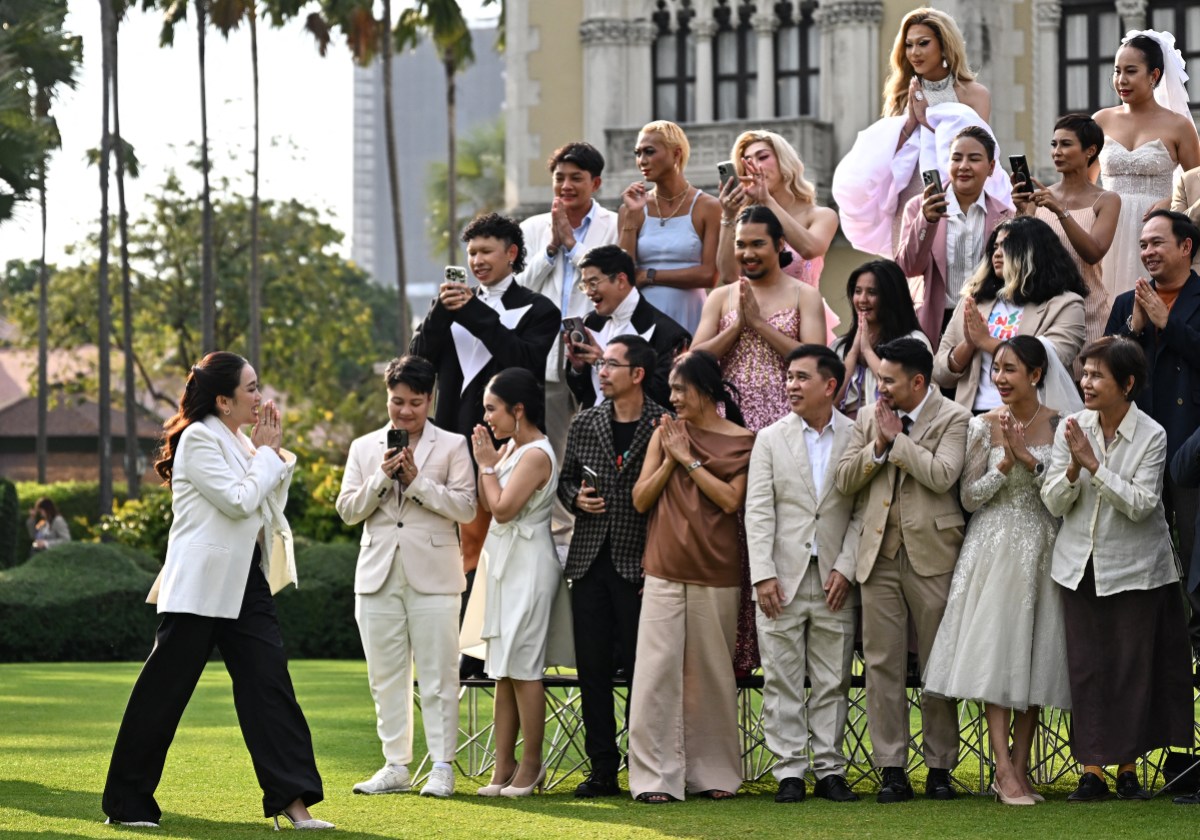
“Marriage Equality Day” (Photo by MANAN VATSYAYANA/AFP via Getty Images)
Thailand has long been a favorite travel spot for LGBTQ+ leisure travelers, as well as a destination for trans patients seeking affordable gender confirmation surgery.
Thailand has also been ahead of the curve when it comes to queer representation in media with its growing BL (Boys Love) and GL (Girls Love) television series, available worldwide on YouTube. There’s been an explosion in sapphic content specifically over the past two years, following the success of the 2022 GL (“Girls Love”) series “The Gap,” which inspired ramped-up GL production, leading to the “Thai Girls Love Renaissance” we’re all lucky enough to be alive to experience. The percentage of Thai production company GMMTV shows produced each year focused on queer storylines skyrocketed to 55% in 2024, up from 5% in 2016.
“Nowadays [Thai TV dramas] represent us as normal characters, like you see in real life,” Thammasat University professor Tinnaphop Sinsomboonthong told the BBC. “The kind of LGBTQ+ colleague you might have in the office, or your LGBTQ+ neighbour. This really helped change perceptions and values in all generations.”
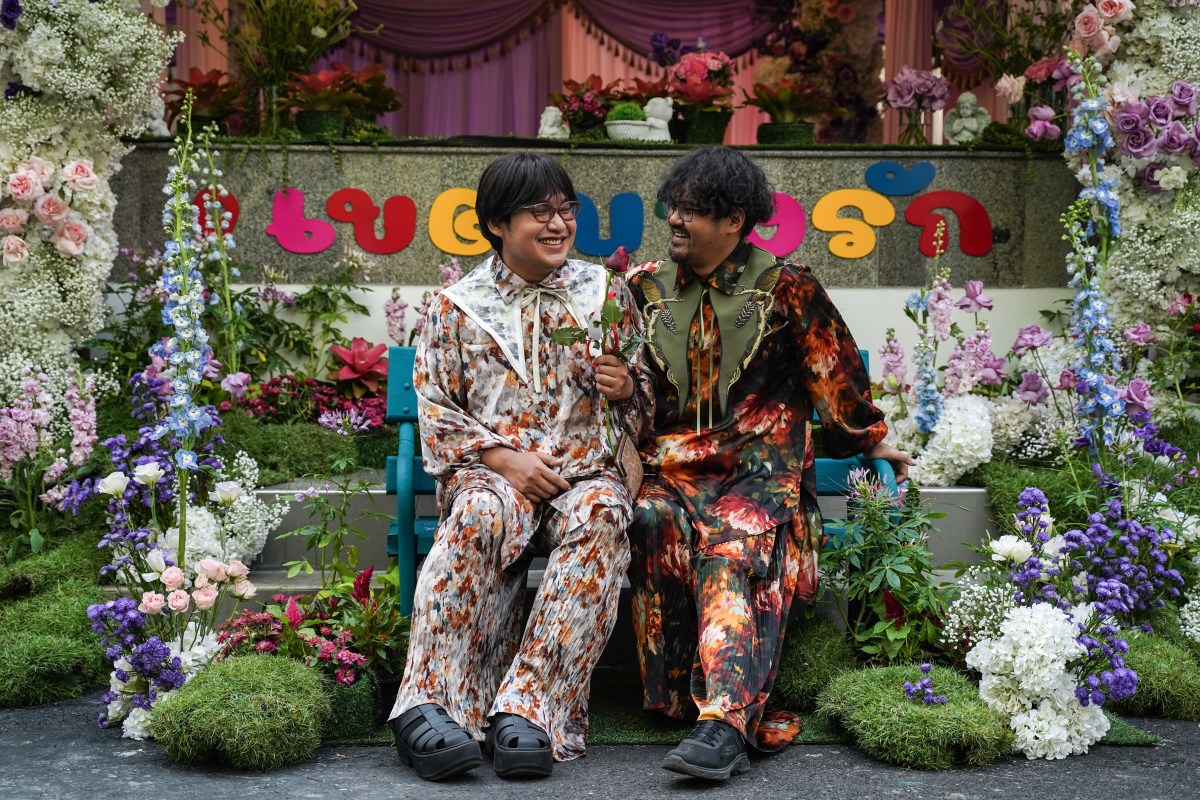
Photo by Anusak Laowilas/NurPhoto via Getty Images
By Thursday’s conclusion, over 1,832 same-sex couples had married.
This is how the world changes — brick by brick, day after day. Progress is made in one area and recedes in another, young people find their voice, politics shift and recede, media visibility rises and pivots and finds its sweet spot. And then, finally, one day, after decades of fighting for equality, lesbian couples can finally get married at the mall, as the goddess intended.
Let the photographs of these extremely happy couples fill your heart today. Sometimes love really does win.
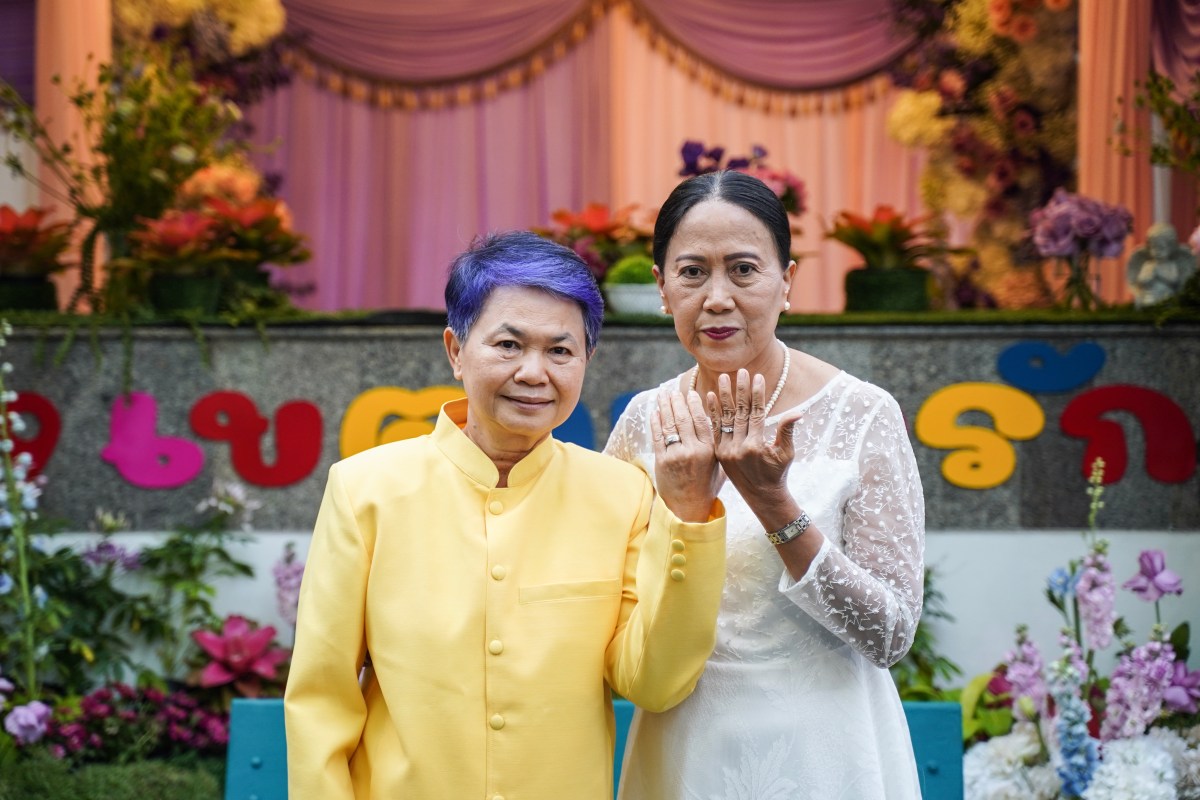
A couple shows off their rings following their marriage during an event to mark the country’s same-sex marriage law coming into effect in Bangkok, Thailand, on January 23, 2025. (Photo by Anusak Laowilas/NurPhoto via Getty Images)



It’s great to celebrate this change. For anyone interested in what happened at the Chiang Mai parade in 2009, there’s a good reflection here https://www.chiangmaicitylife.com/clg/our-city/lgbt/pride-prejuclices-ongoing-lgbt-fight/
Congratulations to Thailand! I’ve been watching some Thai GL series recently, would recommend if you like romance stories. Little bit cheesy at times but some actors with great chemistry and most are available on Youtube.
There’s also a lot of great Thai content on GagaOOLala, which is like the LGBTQIA+ Netflix.
Aww! These photos are so sweet, they’re making me tear up
🫶🏾🫶🏾
Go Thailand! That’s a historic win, especially for that region of the world. Congrats to all the couples that finally have the chance to wed their partner.